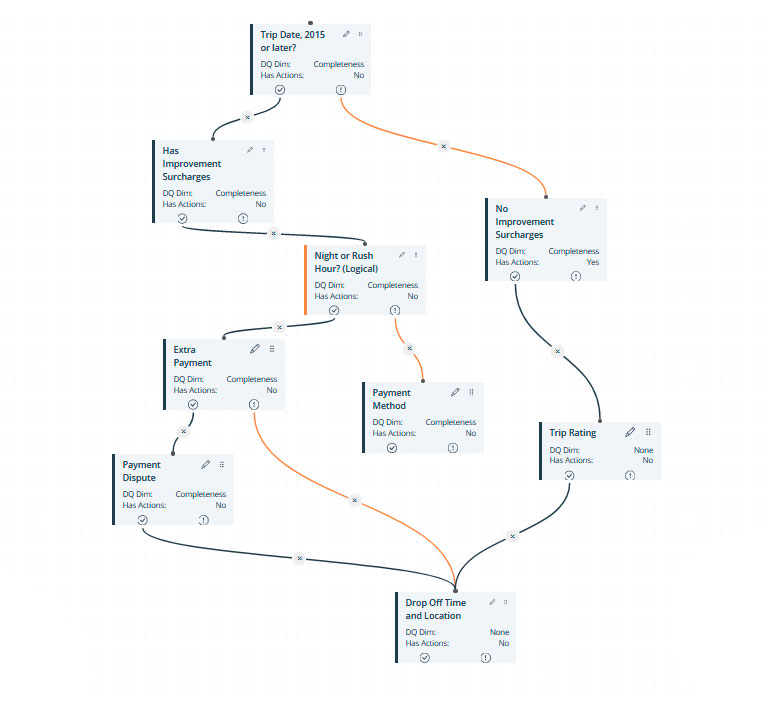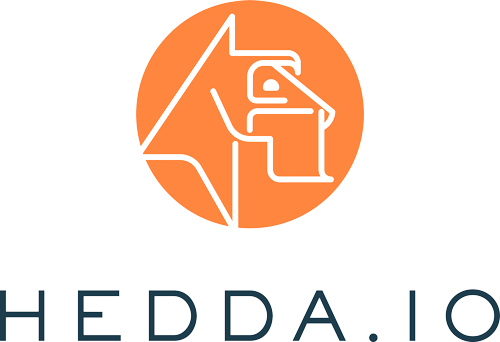business rules.
The application of business rules enables the targeted validation and transformation of data. HEDDA.IO checks standard business rules, such as the data types or the defined members of a domain, for each execution.
In addition, however, simple rules are also often used, including for example: “Expect column values not to be NULL”. In HEDDA.IO, over 40 data type-specific conditions can be applied to create rules ranging from simple to very complex. In addition, you can nest expressions with if-then structures, so there are almost no limits to the logic you can define.
The intuitive Rulebook Editor allows you to define complex logical business rules workflows. Individual rule dependencies can be defined both as purely logical rules within the workflow and as validation rules within the entire process. And you can do this without much effort: The connection of the individual rules within the HEDDA.IO Web UI is possible via intuitive drag-and-drop.
Many of the business rules used refer to the individual rows to be checked within a dataset, so by testing with HEDDA.IO it is possible to determine which records are error-free, incorrect or have been corrected.
But the functions of HEDDA.IO go even further: Use the possibility to define dataset-based rules, e.g. to be able to react to potential complications within the data. This includes practical rules such as:
- „less than 20 % of the column may have NULL values“
- „the number of rows must be at least 5% greater than the previous version“
Transformations can also be mapped quickly and easily via actions. This makes validation easier for you. In addition, minor corrections can be made directly to the data without detours.
Various conditions, actions and business rules provide the user with a comprehensive tool to depict all business rules down to the smallest detail.



